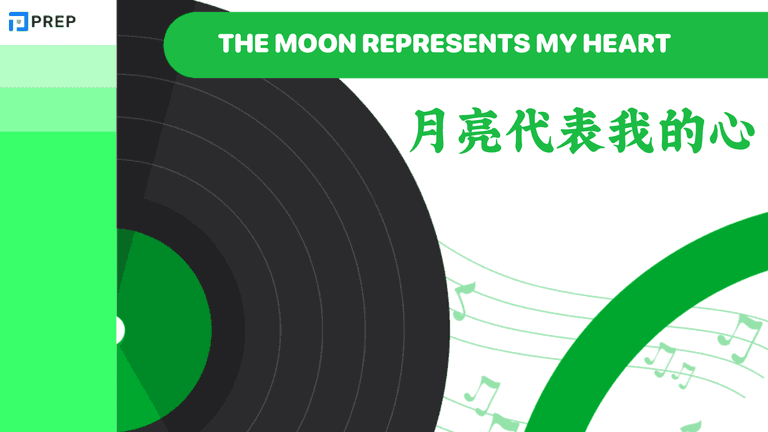J in Chinese: Pronunciation, Pinyin, and Examples
The letter J in Chinese isn’t a standalone letter like in English—it’s a Pinyin initial used in syllables like ji, jie, and jiao. In this guide, you’ll learn what J represents in Mandarin, how to pronounce it accurately, and explore common words and names that start with this sound.
I. What J in Chinese Means?
In Chinese, the letter J isn’t a standalone letter like in the English alphabet. Instead, it’s an initial consonant sound used in the Pinyin system—a Romanization method for writing Chinese pronunciation using the Latin alphabet. Understanding what J represents in Chinese is the first step to pronouncing it correctly and spotting it in vocabulary.
- Pinyin is not an alphabet but a sound system made up of initials (beginning consonants) and finals (vowels and other ending sounds). The J sound is one of the most common initials and appears at the beginning of many essential words.
- J in Chinese does not function independently like the English letter J (e.g. "juice" or "jacket"). Instead, it always combines with specific finals to form complete syllables.
Common Pinyin Syllables That Start with J
Here are some of the most frequent syllables in Chinese that begin with J:
- ji (as in 鸡 / jī – chicken)
- jie (as in 姐 / jiě – older sister)
- jia (as in 家 / jiā – home)
All of these syllables contain the j initial along with a final element, forming a valid Chinese sound unit. Each one is associated with various characters, meanings, and common vocabulary.
Knowing that J in Chinese is part of the phonetic structure—not a letter in a word—will help you approach Pinyin more accurately and avoid confusion in pronunciation or learning new words.
II. How to Pronounce J in Chinese Correctly
Pronouncing J in Chinese can be tricky for English speakers because the sound is similar—but not identical—to the English “j” in words like “jeep.” In Mandarin Chinese, J is produced differently and follows its own rules of articulation based on Pinyin phonetics.
- In Pinyin, the letter J represents a sound that is classified as a voiceless alveolo-palatal affricate.
- IPA (International Phonetic Alphabet): [tɕ]
- This sound is similar to a soft “j” but pronounced with the tip of the tongue lowered, touching the front of the hard palate.
An important thing to know:
- The J sound in Mandarin is much lighter and cleaner than in English.
- It only combines with certain finals like i, ü, and their variations.
Let’s look at a few examples with tone markings:
- jiān (尖) – sharp (1st tone)
- jǐ (几) – how many (3rd tone)
- jiù (就) – then, immediately (4th tone)
How J Differs from Similar Sounds: ZH and Q
Mandarin has several consonants that might sound similar to new learners, especially ZH and Q. Here's how they differ from J:
- J vs ZH
- J is softer and produced with the tongue close to the front of the palate.
- ZH is stronger, produced further back with the tongue curled upward.
- Examples: 教 (jiào – to teach) vs 找 (zhǎo – to look for)
- J vs Q
- J and Q are both palatal sounds, but Q is aspirated, meaning there is a strong burst of air.
- J is unaspirated, spoken more gently.
- Examples: 就 (jiù – then) vs 去 (qù – to go)
Mastering the differences between J, ZH, and Q is essential for improving your spoken Chinese, especially if you're preparing for fluency, oral exams like HSK, or daily conversation.
III. Vocabulary and Characters That Start With J in Chinese
Once you understand how the J sound works in Mandarin Pinyin, the next step is recognizing how it's used in real vocabulary. Many high-frequency words and commonly used names in Chinese begin with j sounds, making it one of the most important initials to master early on.
High-Frequency Vocabulary Starting with J
Here are some useful Chinese words that begin with J, along with their meanings and pronunciation:
|
Word |
Pinyin |
Meaning |
Example Sentence |
|
家 |
jiā |
home, family |
我回家了。(Wǒ huí jiā le.) – I went home. |
|
教室 |
jiàoshì |
classroom |
教室很大。(Jiàoshì hěn dà.) – The classroom is big. |
|
介绍 |
jièshào |
to introduce |
请介绍一下你自己。(Qǐng jièshào yíxià nǐ zìjǐ.) – Please introduce yourself. |
|
机场 |
jīchǎng |
airport |
我在机场等你。(Wǒ zài jīchǎng děng nǐ.) – I’ll wait for you at the airport. |
|
机会 |
jīhuì |
opportunity |
这是一个好机会。(Zhè shì yí ge hǎo jīhuì.) – This is a good opportunity. |
These words appear frequently in dialogue, exams like HSK, and daily communication. Practicing them with their tones ensures you're reinforcing both vocabulary and pronunciation.
Common Chinese Names Starting with J
Many Chinese names begin with J in Pinyin. Here are a few examples:
- Jing (晶 / 静 / 婧) – can mean bright, quiet, graceful depending on character
- Jian (健 / 建 / 剑) – strong, build, sword
- Jia (佳 / 家 / 嘉) – good, home, praise
- Jun (军 / 君 / 俊) – army, monarch, handsome
Names in Chinese often carry symbolic meanings. Understanding their characters helps with pronunciation and cultural insight—useful whether you’re communicating with native speakers, reading Chinese materials, or choosing a Chinese name for yourself.
Mastering the J sound in Chinese may seem subtle at first, but it lays the groundwork for accurate pronunciation, better listening skills, and more confident speech. From jiā (home) to jièshào (to introduce), this single sound appears in dozens of everyday words, names, and expressions.
Keep building your Mandarin foundation with PREP’s sound-based learning guides, pronunciation drills, and vocabulary tools—designed to help you understand Chinese one syllable, one character, and one confident conversation at a time.

Hi I'm Chloe, and I am currently serving as an Product Content Administrator at Prep Education. With over five years of experience in independent online IELTS study and exam preparation, I am confident in my ability to support learners in achieving their highest possible scores.
Comment
Premium content
View allPersonalized roadmap
Most read












